

Title: 国重项目轮毂电机系统研究进展与思考
Panelist: Wei Hua
Abstract: 本次报告汇报国重项目轮毂电机系统所取得的阶段性成果与进展,分析分布式驱动轮毂电机的设计与制造难点,提出相应的解决思路。同时,就国重项目的申请、组织与实施过程中需要注意的一些问题提出个人的一些思考与建议。
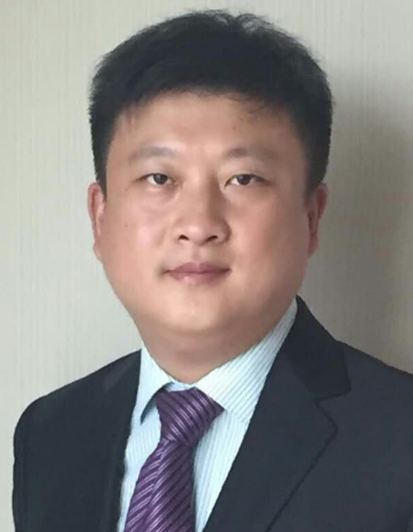
Personal Profile:花为,男,工学博士,东南大学首席教授、江苏特聘教授、博士生导师。国家杰出青年基金、国家优秀青年基金获得者,入选教育部长江学者特聘计划(青年学者)、科技部中青年科技创新领军人才、中组部万人计划科技创新领军人才。主持国家重点研发计划项目(首席科学家)、国家自然科学基金重点项目、基础加强173项目课题、“十四五”ZB预研(基础类)项目、江苏省重大科技成果转化资金项目等。获国家技术发明二等奖、教育部自然科学一等奖、江苏省科学技术一等奖、中国机械工业科学技术一等奖、中国专利优秀奖等。研究方向为电动汽车驱动系统、超导风力发电系统、伺服电机系统、高速电机等。
****************************************************************************************************************************************************************
Title: Distributional Soft Actor-Critic Algorithm for Industrial Optimal Control
Panelist: Shengbo Li
Abstract: Reinforcement learning (RL) has proven to be highly effective in tackling complex industrial control tasks. However, prevalent model-free RL methods often face severe performance degradation due to the well-known overestimation issue. This talk will introduce an off-policy RL algorithm with state-of-the-art performance, called distributional soft actor-critic (DSAC), which can effectively improve the value estimation accuracy by learning a continuous Gaussian value distribution. Standard DSAC algorithm learns a distributional value function instead of focusing solely on its expected value. Mathematical analysis has shown that its overestimation bias is inversely proportional to the variance of value distribution, which builds the theory of overestimation mitigation caused by measurement randomness and approximation errors. Three refinements are then added to standard DSAC to enhance long-term learning stability, including critic gradient adjusting, twin value distribution learning, and variance-based target return clipping. Without any task-specific hyperparameter tuning, DSAC surpasses a lot of mainstream model-free RL algorithms, including SAC, TD3, DDPG, TRPO, and PPO, in all benchmark environments. Additionally, DSAC ensures a highly stable learning process and delivers similar performance across varying reward scales.
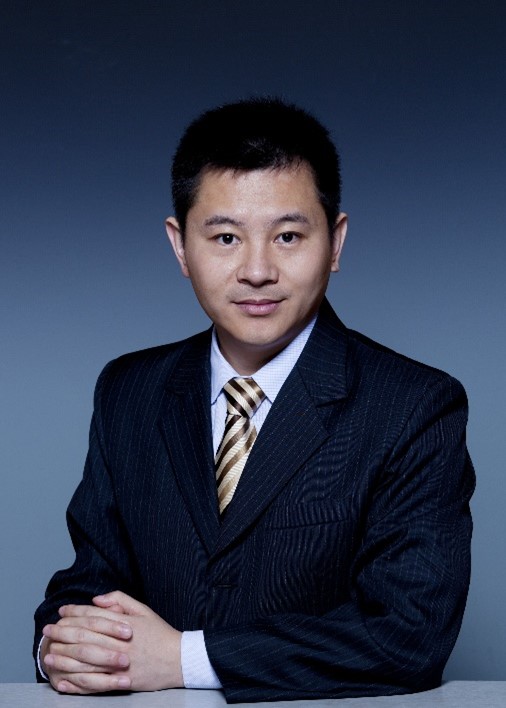
Personal Profile:李升波,清华大学车辆与运载学院教授、博导。主要从事自动驾驶汽车、强化学习、最优控制等领域研究。发表论文140余篇,总引用超过16000次,H因子66。领域顶级学术会议的优秀论文奖10余次。获国家科技进步二等奖、国家技术发明二等奖、中国自动化学会自然科学一等奖、中国汽车工业科技进步特等奖等。获国家高层次科技创新领军人才、教育部青年科学奖、国家自然科学基金优青、首届北京市自然科学基金杰青、教育部青年长江学者等荣誉。曾任IEEE ITS Society BOG委员、中国汽车工程学会青工委主任(首任)、IEEE OJ ITS高级副主编、IEEE Trans on ITS/IEEE ITS Mag副主编等。
****************************************************************************************************************************************************************
Title: On the Safety of Foundation Models
Panelist: Jun Zhu
Abstract: Large-scale pre-trained foundation models have contributed significantly on developing artificial general intelligence (AGI) and revolutionized the fields of natural language processing, computer vision, and multimodal data analysis. However, these foundation models still have serious issues on safety, e.g., which may be broken by adversarial attack. In this talk, I will present the safety issues of multimodal foundation models together with some practice on evaluation and defense.

Personal Profile:Dr. Jun Zhu is a Bosch AI Professor at the Computer Science Department in Tsinghua University, IEEE Fellow, and a Deputy Director of Tsinghua AI Institute. He was an Adjunct Faculty at the Machine Learning Department in Carnegie Mellon University (CMU) from 2015 to 2018. Dr. Zhu received his B.E and Ph.D. in Computer Science from Tsinghua in 2005 and 2009, respectively. Before joining Tsinghua in 2011, he did post-doctoral research in CMU. His research interest lies in machine learning and applications in text and image analysis. Dr. Zhu has published over 100 papers in the prestigious conferences and journals. He is an associate editor-in-chief for IEEE Trans. on PAMI and editorial board member for Artificial Intelligence. He served as senior area chair for ICML, NeurIPS, and ICLR. He was a local co-chair of ICML 2014. He is a recipient of several awards, including ICLR Outstanding Paper Award, IEEE CoG Best Paper Award, XPlorer Prize, IEEE Intelligent Systems "AI's 10 to Watch" Award, MIT TR35 China, CCF Young Scientist Award, and CCF first-class Natural Science Award. His team has won several first-place awards in international competitions, including all the three tasks in NeurIPS 2017 adversarial attack and defense for deep learning and the intelligent decision task in ViZDoom 2018.
****************************************************************************************************************************************************************
Title:自动驾驶关键技术
Panelist: Daxin Tian
Abstract: 作为未来智慧交通的重要组成部分,自动驾驶技术的发展和应用极大程度上推动了传统交通方式向智能化、绿色化、安全化方向转型,实现了提升交通安全、提高出行效率、缓解城市拥堵等方面的综合利益。本报告首先介绍自动驾驶的发展背景;然后聚焦环境感知、路径规划、行为决策、运动控制等方向的创新技术范式,介绍自动驾驶领域前沿理论方法与关键核心技术;最后介绍团队围绕自动驾驶感知-规划-决策开展的一系列技术攻关、测试验证以及示范应用方面的最新进展。
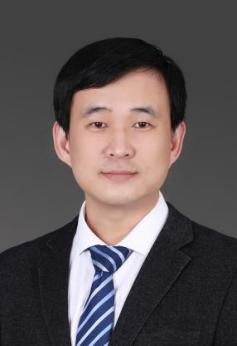
Personal Profile:田大新,长江学者特聘教授,北京航空航天大学科研院副院长兼前沿创新处处长,国家优青、青年长江、牛顿高级学者、中国工程院首届“中国工程前沿杰出青年学者”,担任中国电子学会智能交通信息工程分会副主任、中国计算机学会智能汽车分会副主任、中国指挥与控制学会无人系统专委会副主任、车路协同与安全控制北京市重点实验室主任。主持国家重点研发计划、国家自然基金等国家项目11项,发表学术论文100余篇,出版专著7本、教材2本、译著2本;授权发明专利51项;获国家科技进步奖二等奖等科技奖13项,国家教学成果奖一等奖等教学奖5项;担任国际学术期刊《IEEE Transactions on Intelligent Vehicles》和《Complex System Modeling and Simulation》的Associate Editor。
****************************************************************************************************************************************************************
Title: 智能无人系统的自主协同与博弈
Panelist: Wenwu Yu
Abstract: 本报告先简单回顾人工智能中智能无人系统并拓展到广义的网络群体智能。接着,本报告从网络群体智能自主协同分析、控制、优化、学习等基础理论介绍近期的相关进展,并再此基础上对未来的工作和挑战做进一步阐述。然后着重介绍在无人系统、智能电网、智能交通、智慧城市、大数据和人工智能2.0时代下,基于网络群体智能所面临的新挑战,并再此基础上探索对智能无人系统自主协同与博弈的一些思考。
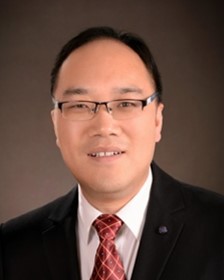
Personal Profile:虞文武,东南大学首席教授(二级)、博士生导师,入选教育部长江学者、青年长江、国家“万人计划”青年拔尖人才、国家优秀青年科学基金获得者;东南大学校学术委员会委员、江苏省网络群体智能重点实验室常务副主任、复杂工程系统测量与控制教育部重点实验室副主任、江苏国家应用数学(东南大学)中心常务副主任、网络通信与安全紫金山实验室数理基础研究中心课题负责人、华为-东南大学网络群体智能联合创新实验室主任;2014-2022连续九次入选科睿唯安/原汤森路透全球高引科学家(工程学)。
主要从事系统科学与人工智能交叉-分析、控制、优化、学习等相关研究,出版合编书1部、专著2部,教材1章节,发表IEEE汇刊文章100余篇;Google和SCI引用过2万次,SCI H指数60;30篇ESI高被引论文(学科前1%);相关研发核心技术支撑人工智能新兴产业的无人系统、智能电网、智能交通、大数据、智慧城市等领域。主持国家科技部科技创新2030“新一代人工智能” 重大项目、基金委重点、教育部、国家部委重大专项、华为公司、国网公司等多项科技项目。
相关成果获国家自然科学二等奖1项,省科学技术奖/自然科学奖一等奖2项及国家一级学会科学技术奖一等奖1项等奖项;曾任IEEE Trans. Circuits and Systems II、IEEE Trans. Industrial Cyber-Physical Systems、IEEE Trans. Industrial Informatics、IEEE Trans. Systems, Man, and Cybernetics: Systems、中国科学信息科学、中国科学技术科学、自动化学报、系统科学与数学、智能科学与技术等杂志编委。
****************************************************************************************************************************************************************
Title: Bayesian potential games and its application to Road network congestion problem
Panelist: Yuhu Wu
Abstract: In this talk, a new transformation that converts a Bayesian game to a so-called ex-ante agent game (a normal-form game) is introduced. Differently from the existing transformation proposed by R. Selten that changes a Bayesian game to an interim agent game, we prove that the new transformation preserves potentiality. In addition, also prove that there is one-to-one correspondence between pure Bayesian Nash equilibria (BNE) of Bayesian games (if one exists) and pure Nash equilibria (NE) of the resulting ex-ante agent games. Then, we provide a sufficient and necessary condition for a Bayesian game to have an ex-ante agent potential game. Particularly, we prove for two-player games, BPGs are exactly the Bayesian games having ex-ante agent potential games. Furthermore, by using the semi-tensor product of matrices, a potential equation for finite Bayesian games is developed. Based on the potential equation, algorithms for verifying potentiality and for searching pure BNE in finite Bayesian games are designed. Finally, the results are applied to a road network congestion problem with incomplete information.
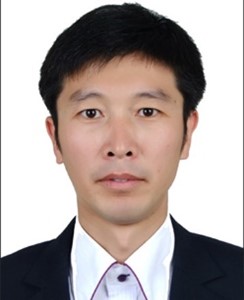
Personal Profile:吴玉虎,教授、博士生导师、国家级人才计划青年项目入选者、现任大连理工大学控制科学与工程学院执行院长。一直从事博弈决策和控制理论方法研究及其在无人飞行器及发动机控制系统和中的应用研究等科研工作。担任Asian Journal of Control(AJC)、International Journal of Control, Automation, and Systems(IJCAS)等国际期刊编,中国自动化学会车辆控制与智能化专业委员会委员,中国自动化学会空间无人系统自主运行技术专业委员会。已发表期刊论文80余篇,包括国际控制领域两大顶级期刊IEEE TAC和Automatica共17篇,其他IEEE系列汇刊共二十余篇,获得IFAC Control Engineering Practice 2020-2022 最佳论文等学术奖项。主持纵向和横向研究课题10余项(国家自然科学基金4项),入选国家级人才计划青年项目。在注重理论创新的同时,也重视研究成果的技术转化与应用推广,申请国家发明专利18项(已授权14项)、国际专利5项(已授权3项),并已获批7项软件著作权,并已成果转化两项。
